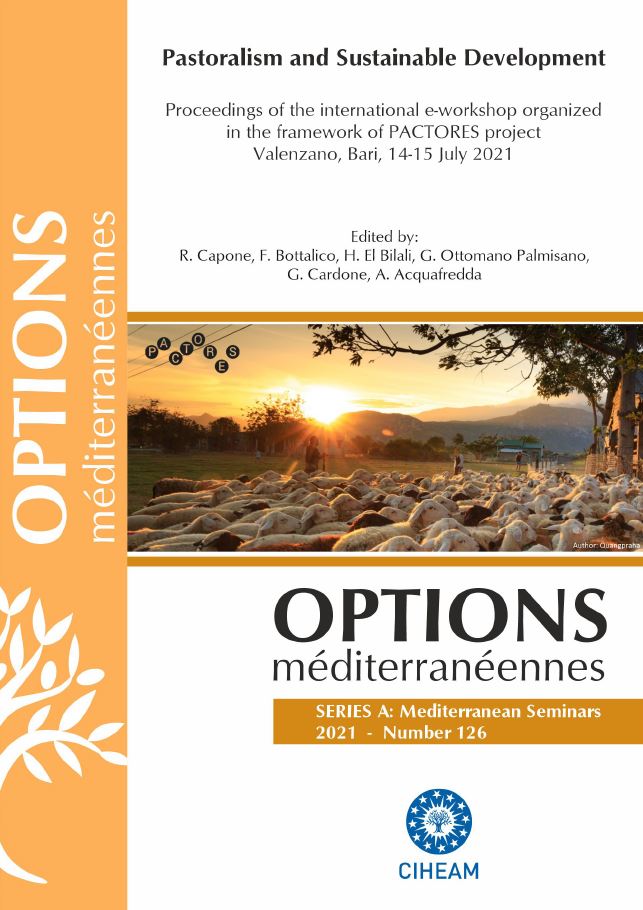| Article précédent | p. 239-249 | Article suivant |
Key constraints and opportunities for pastoral development projects engineering and rangeland governance in South Tunisia
Pastoral development projects engineering in Tunisia has encountered several problems due to the complexity of rangeland resources, territories, societies, and institutional settings. The aim of this paper is to depict some of the current constraints and opportunities faced by three pastoral investment project management units (PMU) in South Tunisia, while characterizing the wider impact of these projects on rangeland governance. We assessed three pastoral development projects in South Tunisia to appreciate their compliance with principle of enhanced development projects engineering including: i) relevance and coherence of the project; ii) effectiveness; iii) efficiency of implementation; and iv) impact orientation and sustainability. The data was gathered using an online questionnaire and focus group discussions with leaders of the three project PMUs. Results emerging from this research show that it is highly important to include infrastructure investments of the projects into a broader perspective of pastoral economic and territorial development. It is further important for pastoral development projects to invest in building enhanced social capital, networks and norms. The impact of the later investments will not be immediate but contributes to building long term resilience and sustainability.
L'ingénierie des projets de développement pastoral en Tunisie a rencontré plusieurs problèmes dus à la complexité des ressources des parcours, des territoires, des sociétés et des cadres institutionnels. L'objectif de cet article est de dépeindre certaines des contraintes et opportunités actuelles auxquelles font face trois unités de gestion de projet (UGP) d'investissement pastoral dans le sud de la Tunisie, tout en caractérisant l'impact plus large de ces projets sur la gouvernance des parcours. Nous avons évalué trois projets de développement pastoral dans le Sud de la Tunisie afin d'apprécier leur conformité avec les principes améliorés de l'ingénierie des projets de développement, notamment : i) la pertinence et la cohérence du projet ; ii) l'efficacité ; iii) l'efficience de la mise en œuvre ; et iv) l'orientation et la durabilité de l'impact. Les données ont été recueillies à l'aide d'un questionnaire en ligne et de discussions de groupe avec les responsables des trois UGP du projet. Les résultats de cette recherche montrent qu'il est très important d'inclure les investissements en infrastructures des projets dans une perspective plus large de développement économique et territorial pastoral. Il est également important que les projets de développement pastoral investissent dans le renforcement du capital social, des réseaux et des normes. L'impact de ces derniers investissements ne sera pas immédiat mais contribuera à la construction d'une résilience et d'une durabilité des acquis du projet à long terme.
- [ Télécharger ]
- [ Exporter la citation ]
Vous pouvez télécharger la citation au format :
- [ Imprimer ]
- [OMA126]




